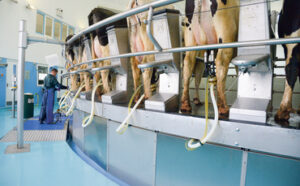
The Roots of Georgia’s Dairy Industry
The dairy industry in Georgia, a state renowned for its agricultural prowess, has a rich history that dates back to the early 19th century. Initially, dairy farming in Georgia was a small-scale operation, with most farms producing milk primarily for local consumption. As the state’s population grew, so did the demand for dairy products, leading to the expansion of the industry.
Expansion and Modernization
By the mid-20th century, Georgia’s dairy industry began to modernize. The introduction of refrigerated transport and pasteurization played a pivotal role in this transformation. This allowed for safer, longer-distance distribution of milk and dairy products, opening up markets beyond local communities. Dairy farms became more commercialized, and production increased significantly.
Challenges and Adaptation
Despite its growth, the industry faced challenges such as fluctuating milk prices, high production costs, and competition from larger dairy-producing states. In response, Georgia’s dairy farmers have continuously adapted, employing innovative farming practices and diversifying their product ranges to include artisan cheeses and specialty dairy products.
Today’s Dairy Landscape
Today, Georgia’s dairy industry remains a vital part of the state’s economy, contributing significantly to its agricultural output. While the number of dairy farms has decreased over the years, those that remain are often larger and more efficient, leveraging technology to sustain their operations.
FAQ:
Q: When did dairy farming begin in Georgia?
A: Dairy farming in Georgia dates back to the early 1800s.
Q: How has the dairy industry in Georgia changed over time?
A: The industry has evolved from small-scale local farming to a more commercialized and technologically advanced sector.
Q: What challenges has the Georgia dairy industry faced?
A: Challenges include fluctuating milk prices, high production costs, and competition from larger dairy states.
Definitions:
– Pasteurization: A process of heating food, especially liquids, to a specific temperature for a definite length of time, and then cooling it immediately. This process slows microbial growth in food.
– Artisan cheeses: Cheeses produced by hand using traditional methods, often with milk from the farm where the cheese is made.



